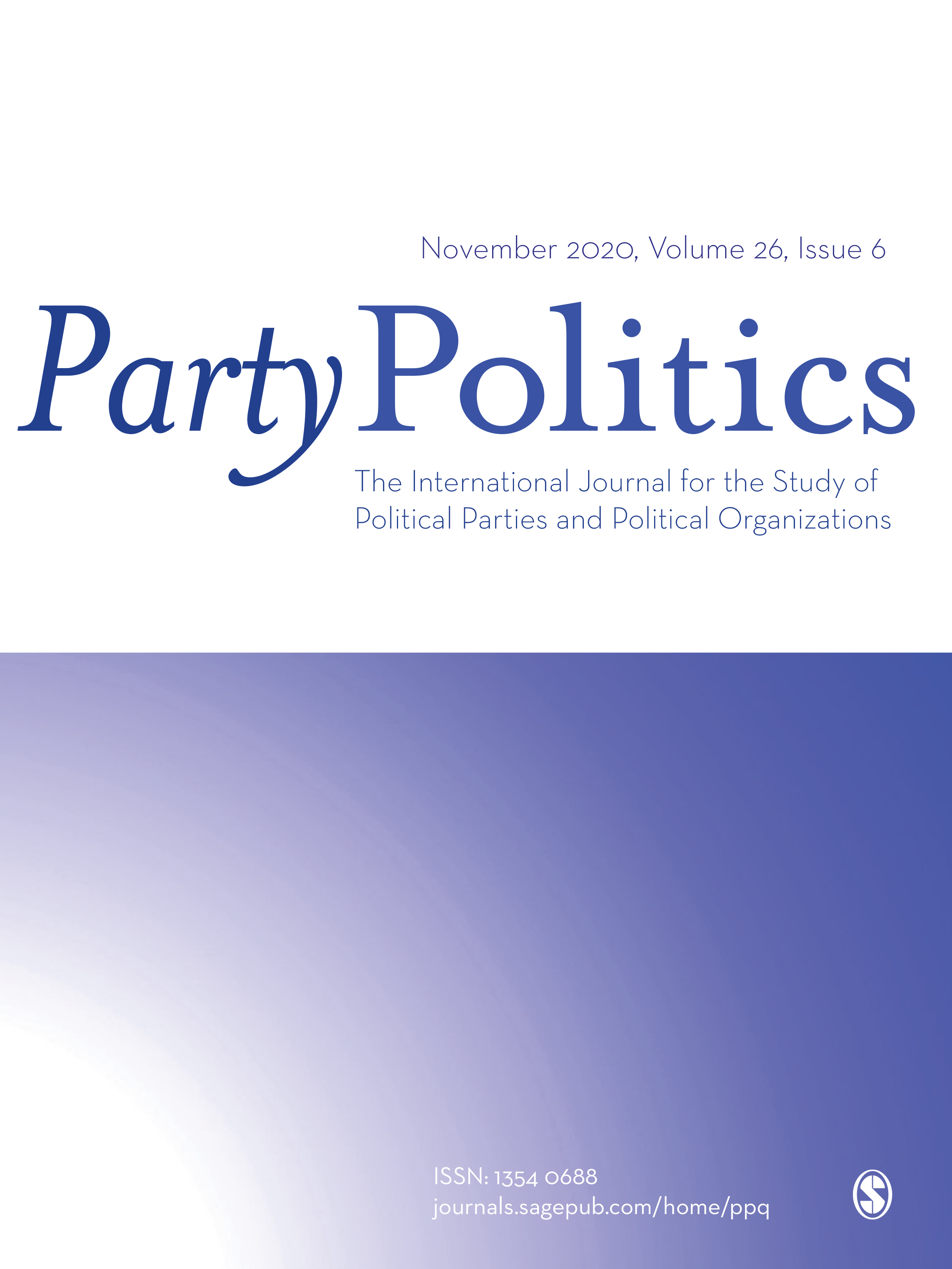Do regional party primaries affect the ideological cohesion of political parties in multilevel systems? Evidence from Spain
Abstract
Get full access to this article
View all access and purchase options for this article.
References
Biographies
Supplementary Material
Please find the following supplemental material available below.
For Open Access articles published under a Creative Commons License, all supplemental material carries the same license as the article it is associated with.
For non-Open Access articles published, all supplemental material carries a non-exclusive license, and permission requests for re-use of supplemental material or any part of supplemental material shall be sent directly to the copyright owner as specified in the copyright notice associated with the article.
- supplemental_pdf.pdf
- 294.00 KB
Cite
Cite
Cite
Download to reference manager
If you have citation software installed, you can download citation data to the citation manager of your choice
Information, rights and permissions
Information
Published In
Keywords
Authors
Metrics and citations
Metrics
Publication usage*
Total views and downloads: 1048
*Publication usage tracking started in December 2016
Altmetric
See the impact this article is making through the number of times it’s been read, and the Altmetric Score.
Learn more about the Altmetric Scores
Publications citing this one
Receive email alerts when this publication is cited
Web of Science: 9 view articles Opens in new tab
Crossref: 9
- New rights, new members? The consequences of intra-party primaries for membership
- Candidate selection and its behavioral consequences
- The Occasional Democratisation of Party Leadership Selection: A Mechanism-Centred ApproachDie gelegentliche Demokratisierung der Parteiführerauswahl: ein mechanismenzentrierter Ansatz
- The effect of primaries on voter evaluations of candidate quality: Experimental evidence
- Choosing among the chosen? Electoral lists and party primaries in Europe
- Inclusive candidate selection and corruption: evidence from Spanish regions
- Affirmative action measures and electoral candidates’ positioning in Zambia
- Politicians in Hard Times
- The effect of candidate electoral experience on ballot placement in list proportional representation systems
Figures and tables
Figures & Media
Tables
View Options
Access options
If you have access to journal content via a personal subscription, university, library, employer or society, select from the options below:
loading institutional access options
Alternatively, view purchase options below:
Purchase 24 hour online access to view and download content.
Access journal content via a DeepDyve subscription or find out more about this option.



